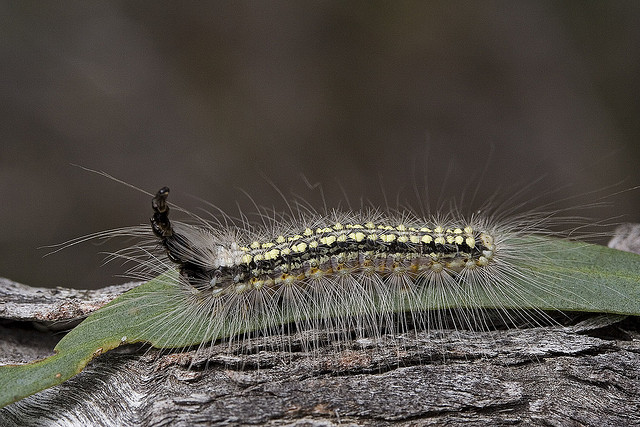MI weekly selection #27
MI weekly selection #27
The mad hatterpillar
These caterpillars are native to Australia and eat eucalyptus trees. Why do they build themselves a hat? No one really seems to know why the caterpillars keep their old heads hanging around.
When Cleaning fMRI Data is a Nuisance
A flaw in data processing could be leading to biases in fMRI brain functional connectivity patterns, according to a new report: The Nuisance of Nuisance Regression.
The lost cousins of Homo sapiens in Asia and the South Pacific
Humans are believed to have evolved from a line of ancestors dating millions of years ago and originating in Africa. The subsequent Homo sapien ancestors dispersed across Europe and Asia. Of particular note are the “Homo denisova“, of which fragments were found in Siberia, and Homo floresiensis, of which fragments have been found in Flores, Indonesia. Both of these species are of particular relevance to the Southeast Asian and Pacific Island areas because of their continued presence in the DNA of modern humans living there.
New subduction zone off Spain’s coast can give clues to how they form
Researchers at Monash University in Melbourne, Australia, have found a subduction zone off the shore of Spain, west of Gibraltar. A subduction zone occurs when one of Earth’s tectonic plates goes beneath another. Continents draw closer to one another as the crust disappears. “Identification and understanding of such processes may provide new insights on how subduction zones may have initiated in the past and how oceans start to close,” said researcher João Duarte.
Study links insulin resistance to lower dopamine release
Insulin resistance and its association with less dopamine release in a central brain reward region might promote overeating to compensate for this deficit.
